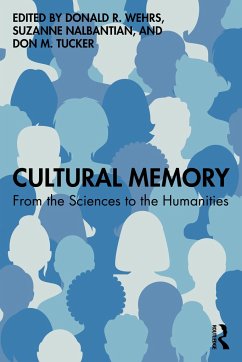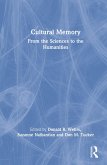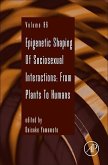Bringing together neuroscientists, social scientists, and humanities scholars in cross-disciplinary exploration of the topic of cultural memory, this collection moves from seminal discussions of the latest findings in neuroscience to variegated, specific case studies of social practices and artistic expressions. This volume highlights what can be gained from drawing on broad interdisciplinary contexts in pursuing scholarly projects involving cultural memory and associated topics.
The collection argues that contemporary evolutionary science, in conjunction with studies interconnecting cognition, affect, and emotion, as well as research on socially mediated memory, provides innovatively interdisciplinary contexts for viewing current work on how cultural and social environments influence gene expression and neural circuitry. Building on this foundation, Cultural Memory turns to the exploration of the psychological processes and social contexts through which cultural memory is shaped, circulated, revised, and contested. It investigates how various modes of cultural expression-architecture, cuisine, poetry, film, and fiction-reconfigure shared conceptualizing patterns and affectively mediated articulations of identity and value. Each chapter showcases research from a wide range of fields and presents diverse interdisciplinary contexts for future scholarship.
As cultural memory is a subject that invites interdisciplinary perspectives and is relevant to studying cultures around the world, of every era, this collection addresses an international readership comprising scholars from the humanities, social sciences, and natural sciences, from advanced undergraduates to senior researchers.
The collection argues that contemporary evolutionary science, in conjunction with studies interconnecting cognition, affect, and emotion, as well as research on socially mediated memory, provides innovatively interdisciplinary contexts for viewing current work on how cultural and social environments influence gene expression and neural circuitry. Building on this foundation, Cultural Memory turns to the exploration of the psychological processes and social contexts through which cultural memory is shaped, circulated, revised, and contested. It investigates how various modes of cultural expression-architecture, cuisine, poetry, film, and fiction-reconfigure shared conceptualizing patterns and affectively mediated articulations of identity and value. Each chapter showcases research from a wide range of fields and presents diverse interdisciplinary contexts for future scholarship.
As cultural memory is a subject that invites interdisciplinary perspectives and is relevant to studying cultures around the world, of every era, this collection addresses an international readership comprising scholars from the humanities, social sciences, and natural sciences, from advanced undergraduates to senior researchers.
"With something as diffuse as 'cultural memory,' the rich resources behind the humanities, social sciences, and neuroscience must be called upon. Readers will here be amply rewarded by the range and clarity of the competing frameworks on offer. Leading experts consistently help make sense of this vast terrain even as they help build it and trouble its assumptions. Throughout, literature and the arts help us to think through enactive, evolutionary, and predictive scientific models of mind, memory, and trauma."
Richard C. Sha, Professor of Literature and Affiliate Professor of Philosophy, American University
"This innovative collection approaches the situated dynamism, adaptive resilience, and transgenerational reach of human memory. From ancient folk tales to modernist epics and immigrant recipes, storytelling and symbolization support the plasticity and pluralism of cultural memory in search of sustainable worlds. Combining new research in neuroscience and epigenetics with cultural analysis, this volume has profound implications for how we understand and enact consciousness, agency, and collective identity in the face of war, globalization, and the ruins of time."
Julia Reinhard Lupton, author of Shakespeare Dwelling: Designs for the Theater of Life
"This book represents an audacious attempt to integrate cultural knowledge into a general neuro-cognitive model of human knowledge. Such integration is a necessary step toward our understanding of how primate cognition over time evolve to accommodate the rise of of human communication and human culture."
T. Givon, Professor Emeritus of Linguistics and Cognitive Science, University of Oregon
Richard C. Sha, Professor of Literature and Affiliate Professor of Philosophy, American University
"This innovative collection approaches the situated dynamism, adaptive resilience, and transgenerational reach of human memory. From ancient folk tales to modernist epics and immigrant recipes, storytelling and symbolization support the plasticity and pluralism of cultural memory in search of sustainable worlds. Combining new research in neuroscience and epigenetics with cultural analysis, this volume has profound implications for how we understand and enact consciousness, agency, and collective identity in the face of war, globalization, and the ruins of time."
Julia Reinhard Lupton, author of Shakespeare Dwelling: Designs for the Theater of Life
"This book represents an audacious attempt to integrate cultural knowledge into a general neuro-cognitive model of human knowledge. Such integration is a necessary step toward our understanding of how primate cognition over time evolve to accommodate the rise of of human communication and human culture."
T. Givon, Professor Emeritus of Linguistics and Cognitive Science, University of Oregon









